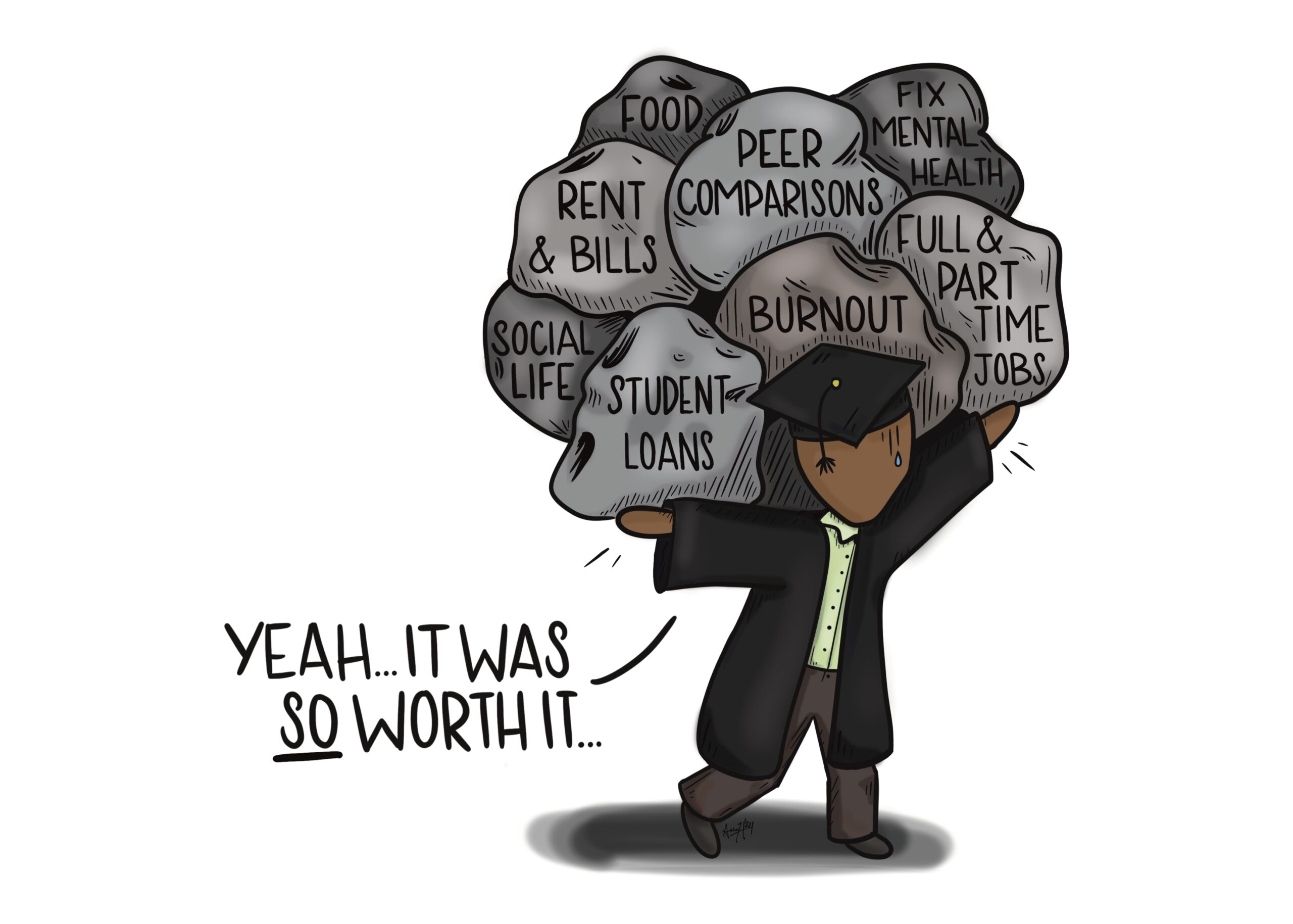
The end of spring semester is always a time filled with much to celebrate with the end of a long school year, the beginning of summer and, most exciting for seniors, graduation. While graduating college will always be a milestone to celebrate, it can also bring about much uncertainty and anxiety, especially for students graduating with degrees in creative disciplines.
Columbia’s tuition is set to rise 5% for the 2024-25 school year. Pressures are heavier than ever for students to solidify their post-graduation plans. Student loans have to be paid back, rent has to be paid, and food needs to be in the fridge. Securing a job post graduation is no longer a want for students but a need.
The transition from school into the working world is not necessarily a smooth one. Some students say they feel unequipped, and 70% of soon-to-be college graduates say that their debt will influence the job they take post-grad.
Many seniors have experienced burnout and exhaustion throughout their collegiate career, a feeling that many believe will persist even after they graduate. Forty percent of college students say that they will have to pursue a freelance job outside of the full-time job they hope to secure postgrad.
“I am considering getting a part-time job to work on weekends to try and help with my living expenses,” said Makayla Mcgee, an interior architecture major,“even though I already have a full-time job after graduation.”
Students have responsibilities outside of school; therefore, getting involved in their own projects outside of class is not always an option. However, students start to compare themselves to their peers.
The privilege of taking your time to find a job post-grad does not exist. We are thrown right into the race without a second to catch our breath from the last four years of running. The pressure to succeed comes from all around us.
The pressure is not made any better when students feel they have not been equipped with the tools and resources needed to succeed post-graduation.
As a rising senior I can attribute a majority of my collegiate success to seeking out opportunities for myself. The school could help students take advantage of opportunities and reduce the pressure by making them a part of the college curriculum.
Columbia is likely going to reduce its core, from 42 to 30 credits, at the recommendation of President and CEO Kwang-Wu Kim. Maybe it makes sense for students to have more opportunities within their majors.
The Fashion Studies Department offers student scholarship competition courses that if you do well on them can open the door to a multitude of connections and opportunities. Classes like this should be a requirement. The “National Retail Federation University Challenge” course is one of the scholarship courses running in the fall. It is a cross-discipline team competition where students will work on a case study in groups for a chance to win a monetary prize. This serves as a perfect example of what Columbia needs more of to help students succeed and aid in their building of a portfolio within the classroom.
Having more of these options would help prepare students for the professional world.
Tiffany E. Barney is a fashion merchandising major at Columbia.







Be First to Comment